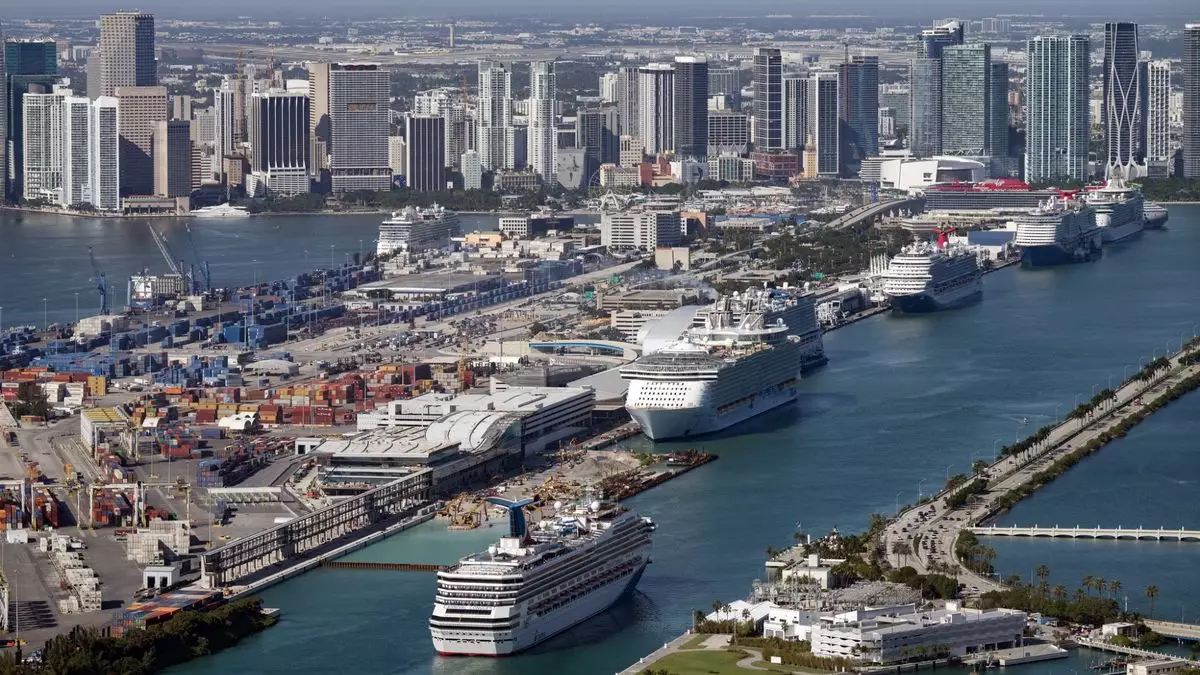On October 1, the International Longshoremen’s Association (ILA) initiated a strike that significantly affected port operations across the United States, stretching from Maine down to Texas. This action has emerged as an essential strategy for the union to negotiate better wages and express concerns regarding the increasing automation within the industry. While their strike has led to severe disruptions, notably affecting cargo shipping, the ILA has made a conscious decision to exempt cruise operations from its impact. According to Harold Daggett, the president of the ILA, this approach reflects a commitment to ensuring that holidaymakers are not left in distress over their planned vacations.
The union’s decision to allow crew members to continue servicing passenger cruise ships signals an awareness of the broader ramifications that a prolonged strike could have on families who have anticipated their travel plans for many months. In a time where the travel industry, particularly cruises, has faced significant hardships due to the pandemic, the ILA’s pivot to safeguard this sector shows a nuanced understanding of both the economic and emotional stakes involved. Families from various backgrounds have invested substantial sums into their vacations, typically arranged well in advance, as noted by Daggett’s acknowledgment of the planning involved in cruise bookings.
While the ILA is committed to maintaining cruise services, their strike does not come without consequences. Cargo operations at 36 pivotal U.S. ports along the Atlantic and Gulf coasts have ground to a halt, potentially leading to widespread shortages of essential goods. Grocery stores may suffer from diminished inventories, impacting the daily lives of countless Americans. Additionally, sectors reliant on timely vehicle deliveries could face disruptions, exacerbating existing supply chain challenges. The ILA’s actions underscore the strategic importance of port workers in the larger context of U.S. trade logistics, while also bringing automation into the discourse—an increasingly pervasive aspect of what workers see as threats to job security.
Industry stakeholders are beginning to take notice of the ILA’s actions and the underlying grievances. A spokesperson from Norwegian Cruise Line Holdings expressed appreciation for the ILA’s decision to prioritize cruise customers. Such responses illustrate a recognition within the travel industry that the strike’s ramifications could extend beyond ports, affecting customer satisfaction and future business operations. Should the strike continue longer than anticipated, industries might need to evolve; proactive measures will be essential to mitigate the fallout that could trigger economic repercussions across various sectors.
The ILA strike not only highlights the ongoing struggles within the labor market but also serves as a critical reminder of the interconnected nature of trade, travel, and economic stability in the U.S. As negotiations continue, the workers’ call for better wages and the conversation around automation will likely shape the future of labor relations in the industry. The coming weeks will be crucial to watch, as the balance between worker rights and operational demands will test the resilience of U.S. ports and the industries that depend on them.

